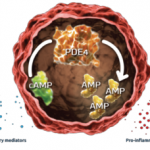MADRID—During the 2019 European Congress of Rheumatology (EULAR), held June 12–15, speakers addressed the complexity of vasculitis in a Challenges in Clinical Practice session titled, How to Maintain Remission in Vasculitis. Although vasculitis appears in many varieties, one commonality exists among these related yet distinct conditions: When there is vital organ or systemic involvement, disease…









